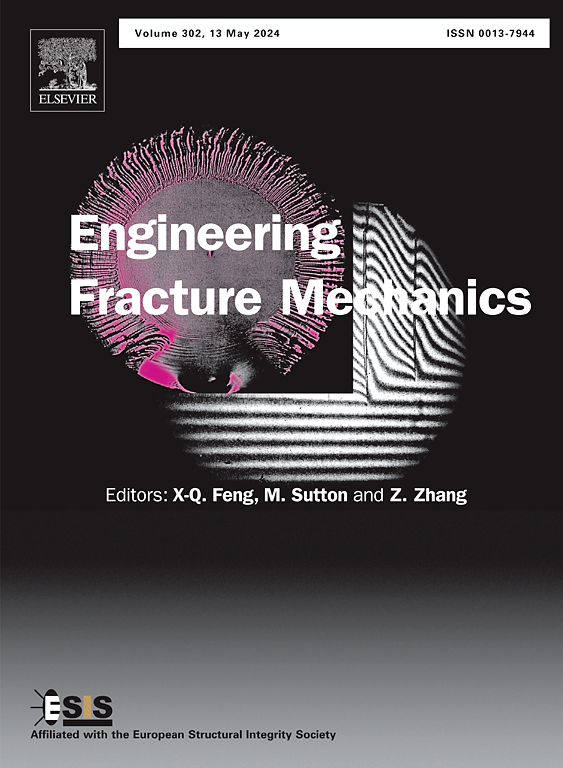Coupling algorithm of cavity expansion theory and finite element for penetrating reinforced concrete
IF 4.7
2区 工程技术
Q1 MECHANICS
引用次数: 0
Abstract
Aiming at the dynamic problem of projectile penetrating reinforced concrete, this paper creatively proposes a coupling algorithm combining cavity expansion theory and the finite element method. This approach effectively resolves the problem of low efficiency in finite element simulations while ensuring computational accuracy. In this study, based on the cavity expansion theory, we have redeveloped the display dynamics software. Radial stress in the concrete is applied to the warhead surface in the normal direction, and the interaction between the projectile and the steel bar is simulated using the finite element contact algorithm. A coupling algorithm has been developed that can stably and quickly simulate the penetration of reinforced concrete by a projectile. The study indicates that the implementation of the coupling algorithm primarily includes four steps: model establishment and meshing, stress load program design, load application, and initial condition setting. Through verification and analysis, the coupling algorithm presented in this paper is demonstrated to effectively compute the dynamic response of a projectile during penetration. It exhibits superior computational stability and speed compared to the finite element method, and shows minimal sensitivity to grid size. When applied to numerical models with small meshes, it achieves both high precision and rapid computation. The coupling algorithm program design proposed in this paper can be implemented in any display dynamics software, offering a robust approach for engineers and researchers to predict projectile penetration effects. Furthermore, it provides a rapid assessment method for the anti-penetration performance of reinforced concrete structures.
穿透式钢筋混凝土的空腔膨胀理论与有限元耦合算法
针对弹丸穿透钢筋混凝土的动力学问题,本文创造性地提出了空腔膨胀理论与有限元法相结合的耦合算法。这种方法在保证计算精度的前提下,有效解决了有限元模拟效率低的问题。在本研究中,我们以空腔膨胀理论为基础,重新开发了显示动力学软件。将混凝土中的径向应力沿法线方向施加到弹头表面,利用有限元接触算法模拟弹丸与钢筋之间的相互作用。开发的耦合算法可以稳定、快速地模拟弹丸穿透钢筋混凝土的过程。研究表明,耦合算法的实施主要包括四个步骤:模型建立和网格划分、应力载荷程序设计、载荷施加和初始条件设置。通过验证和分析,本文提出的耦合算法可以有效计算抛射体在穿透过程中的动态响应。与有限元方法相比,该算法具有更高的计算稳定性和速度,并且对网格大小的敏感性极低。当应用于小网格的数值模型时,它可以实现高精度和快速计算。本文提出的耦合算法程序设计可在任何显示动力学软件中实现,为工程师和研究人员预测弹丸穿透效应提供了一种稳健的方法。此外,它还为钢筋混凝土结构的抗穿透性能提供了一种快速评估方法。
本文章由计算机程序翻译,如有差异,请以英文原文为准。
求助全文
约1分钟内获得全文
求助全文
来源期刊
CiteScore
8.70
自引率
13.00%
发文量
606
审稿时长
74 days
期刊介绍:
EFM covers a broad range of topics in fracture mechanics to be of interest and use to both researchers and practitioners. Contributions are welcome which address the fracture behavior of conventional engineering material systems as well as newly emerging material systems. Contributions on developments in the areas of mechanics and materials science strongly related to fracture mechanics are also welcome. Papers on fatigue are welcome if they treat the fatigue process using the methods of fracture mechanics.

 求助内容:
求助内容: 应助结果提醒方式:
应助结果提醒方式:


